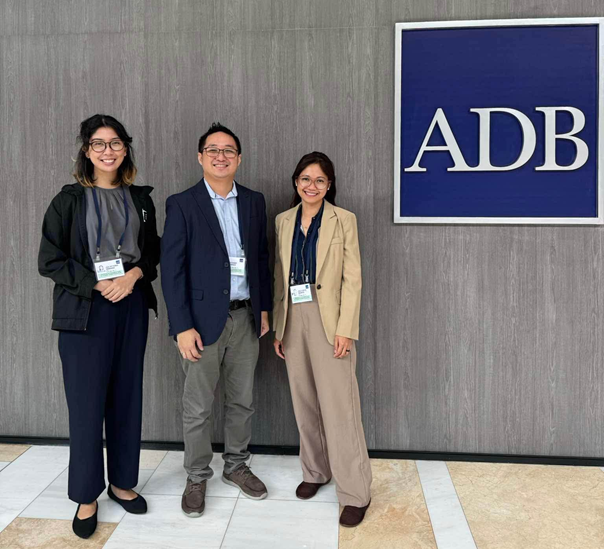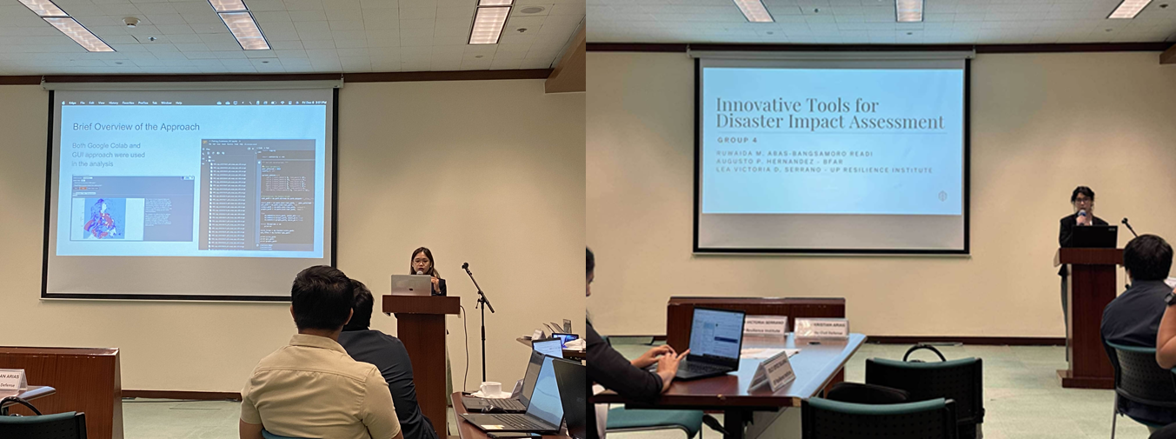Posted by: Hazard Assessment Team and Education Division
From December 5 to 6, 2024, the UP Resilience Institute (UPRI) and UP NOAH Center participated in the Workshop on Innovative Tools for Disaster Impact Assessment at the Asian Development Bank (ADB) Headquarters in Mandaluyong City, Philippines. This workshop is part of the ADB Regional Project Nowcasting and Disasters: Impact-Based Forecasting and Socioeconomic Monitoring. The project seeks to equip analysts and policymakers with timely and relevant information during extreme events such as natural disasters and economic crises.

The first day of the workshop featured experts from various institutions presenting innovative disaster information platforms and assessment tools. These included systems for quantifying typhoon impacts on port activity and fishing operations, as well as the Rapid Earthquake Damage Assessment System (REDAS) and GeoRiskPH, developed by PHIVOLCS (Philippine Institute of Volcanology and Seismology).
Representing UPRI, Mr. Richard L. Ybañez, Chief Science Research Specialist of the Education Division, delivered a presentation titled “Geospatial Technologies Applications in Philippine Disaster Resilience Efforts.” He highlighted publicly accessible hazard maps available on the UP NOAH website, alongside disaster studies conducted by the institute. These researches and maps cover various hazards, including floods, storm surges, landslides, and even landslide-generated tsunamis.
On the second day, ADB introduced a new toolkit under development designed to estimate the impact of cyclones on fishing activity. Participants engaged in a hands-on session, exploring the toolkit’s code and running test cases in collaborative groups.

The workshop underscored the importance of collaboration and innovation in enhancing disaster resilience efforts in the Philippines and across the region. By sharing knowledge, tools, and experiences, institutions like UPRI and ADB aim to bridge the gap between science and policy to create safer and more resilient communities.
